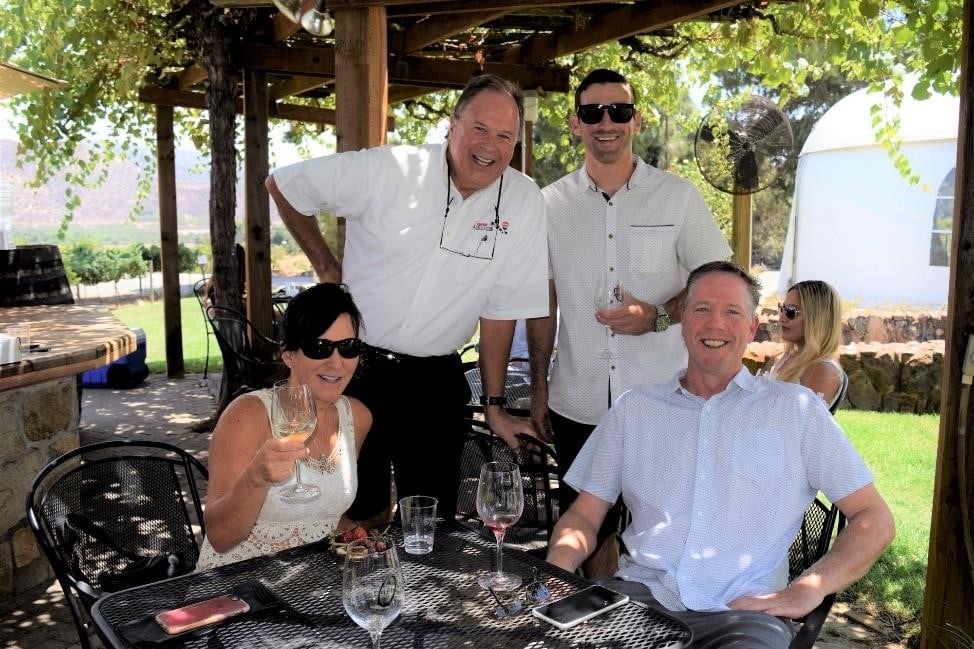How HubSpot AI Tools Supercharge Lead-Nurturing Campaigns
Let's paint a familiar picture: sales teams work tirelessly, chasing leads that may never convert. Meanwhile, the marketing team labors to deliver...
I know what I am looking for, and would like to chat.
A team of data-driven marketers obsessed with generating revenue for our clients.
Because the proof is in the pudding.
At Campaign Creators we live by three principles: Autonomy, Mastery, Purpose.

Whether you're a real estate business owner, a marketer in the real estate space, or a real estate agent, you are going to want to get out your notepad. Today, we are talking about lead nurturing strategies tailored specifically to real estate. We are going to do this by diving into the actual lead nurturing practices of a successful real estate agent.
Who is this agent? It's local San Diego real estate agent, Bob Adams, whom has been selling homes since 1978 and currently works for RE/MAX Associates. He was kind enough disclose his secrets to effectively finding qualified leads, nurturing them into clients and retaining them for years.
Read on to discover the secrets to successful real estate lead generation and nurturing.
What is Lead Nurturing and Why is it Important?
Lead nurturing is important to a growing business because of the effect of positive customer experience. Positive customer experience during each step of the buyer's journey nurtures and guides decisions that the customer will make about your business, products or services.
So, what is lead nurturing? It's the act of educating a lead and moving them through the stages of your company’s customer lifecycle, improving the quality of that lead over time. Lead nurturing is about building trust and reciprocal relationships with your prospects to the point where they become paying customers.
The real estate business itself is all about forming genuine, trusting relationships with clients, and reassuring them that the person helping them find or buy a home is not only qualified, but also cares about them and their goal.
“Lead nurturing is a necessity because of the referral aspect of the business. I put a lot of effort into converting a lead into a client so that they stay within my sphere of influence, and once they've been through my sales process, will want to refer me to their friends.”
Bob Adams generates most of his clients through a referral-based system, which he has built via a large base of contacts, because he never knows where in San Diego his next client might be interested in buying a home. Although each new client may be a qualified lead, due to them being referred by a former client, Bob still places importance on nurturing them towards a buying decision as if they were going through each stage of the buyer's journey.
“I don't ask for referrals, I ask for introductions. I ask my clients to do one thing when they hear about a friend who is talking about real estate. I ask them to call me as soon as they can so we can discuss the best way to make an introduction. I typically preference this question as 'If you were me, how could you best make the introduction happen.' If they are comfortable with this idea, they are typically very excited to help me out”
It's important how Bob tackles this question. His approach is personable versus business-oriented, and is focused on creating a relationship with his client. Also, a precedent is set, that he considers the client's needs and preferences, even before they speak to him.
The realm of real estate is a personable business, and we're being honest when we say Bob Adams perfectly fits the bill perfectly. He is the epitome of friendliness, but how does he keep that up with clients and maintain a strong relationship over the course of years?
Bob must be persistent, consistent and inviting. Strategies he deploys reflect his personality, servicing his clients either online or in-person, though he is keen on the latter. How Bob successfully helps nurture leads is indicative by how he delights current and past clients.

Bob's favored strategies involve investing in in-person events where he can meet both his clients and potential clients. At these events, Bob is able to converse and become familiar with attendees, to gauge if they are the qualified leads he is looking for. But if a lead is hesitant, don't worry! Event marketing is more likely to turn a prospect into a lead than other strategies due to the nature of the face-to-face, personal interactions.
Unfortunately, limitations exist when trying to reach out on a personal level to every single client when operating a business. Despite his preference to meet clients face-to-face, marketing automation has come in-handy when he wants to reach out to those he can't see in person. To do this, he has set up a monthly newsletter, that provides his clients with valuable real estate information about housing prices, financing tips and other advice.
The key to a successful lead nurturing newsletter is to provide information that educates leads on problems they may be facing. Newsletters are not the place to sell your services. They are the place to be helpful and establish yourself as an industry expert. That way when a lead is ready to buy or sell their home, they come to you - an expert they trust. Here's a great how-to from HubSpot on creating email newsletters.
In addition to his live events and newsletters, Bob also likes to check up with his contacts time-to-time by sending them personalized, hand-written letters. These letters often offer congratulations or are a way to follow-up with successful clients and leads.
And, of the approximate 150 people in his sphere of influence, Bob contacts his top five by phone every week, his top 25 are put in a weekly drawing, and his top 90 are put in a bi-monthly drawing, to win prizes like Disneyland tickets or restaurant gift cards. Bob Adam's lead nurturing strategies are unique, but still, they are appropriate for the type of business he conducts and are well-established, and so should yours.
As we've seen, the same lead nurturing strategies which Bob Adams uses in his real estate business also impact customer retention, which in turn, tends to increase his lead generation. When done right, lead nurturing is a force to be reckoned with. It is a key component in real estate for optimizing the success of each stage of the inbound method.
 As an example, each time he hosts his wine tasting event, it's expensive to put on. He estimates roughly $2,400. But, if one new client is introduced to him from a gathering involving any of his 150 top contacts, a possible sale is on the table, and he can expect up to 900% return on his investment (ROI). So, if you're interested in how much a real estate agent makes per sale, this is a very rough estimate, but his ROI would be $21,600. Just one sale secures him roughly a fourth of the average salary of a San Diego real estate agent, which Indeed reported at $82,182.
As an example, each time he hosts his wine tasting event, it's expensive to put on. He estimates roughly $2,400. But, if one new client is introduced to him from a gathering involving any of his 150 top contacts, a possible sale is on the table, and he can expect up to 900% return on his investment (ROI). So, if you're interested in how much a real estate agent makes per sale, this is a very rough estimate, but his ROI would be $21,600. Just one sale secures him roughly a fourth of the average salary of a San Diego real estate agent, which Indeed reported at $82,182.
“I never know who's going to be the next person to introduce me to someone they care about. That's why these events are so important.”
However, imagine you're not as lucky as Bob. Instead, you're hosting events that don't produce the same results he has. You'll need to investigate why. These events are a way to nurture qualified or close-to-be qualified leads- so is yours accomplishing that? If not, what can you do to better find qualified leads and better convert them to customers? Are you providing a quality experience, or is it subpar, or even lackluster? In any type of business, the best way to find out is through feedback.
What hasn't been elaborated on well-enough, but is still very poignant, is the position Bob places himself in. The events he holds to promote his business go beyond simply vying for referrals from already established customers. They are opportunities to gain contextual feedback on his business, whether its by him asking them questions directly, giving them a survey or questionnaire, or by any other method he can use to gain feedback.
Feedback is essential when building effective lead nurturing strategies. You can use it to benefit sales, marketing, and your own customer service. It can optimize your customer experience if you listen to your client's wants and needs and implement a strategy to satisfy them. Learn what parts of your strategy do and do not work, and adapt. Ask yourself questions beforehand that leads or clients may have about your products or services.
From our interview with Bob Adams, we learned quite a lot about his business, his strategies and his concern for his clients. Now, it is up to us to discern what information is most valuable. This is what we came up with.
The key to lead nurturing starts with being helpful and thinking about the customer first. Understand the questions they will ask you of your business and seek out solutions for their pain points. From there, you can focus on creating genuine experiences for them and establish a trusting relationship, rather than pushing them to use your service.
Building better customer experiences proves to be successful as we've seen with Bob Adams, whether your business is still growing or already has an established customer base. It rewards both your business and customer loyalty. So, let us help guide you on your path to better nurture leads with our Lead Nurturing Masterclass. Happy nurturing!

Let's paint a familiar picture: sales teams work tirelessly, chasing leads that may never convert. Meanwhile, the marketing team labors to deliver...

Lead nurturing isn’t just a nice-to-have anymore—it’s the secret sauce for businesses that want to thrive in today’s competitive landscape. Imagine...

One of the most exciting advancements reshaping B2B marketing today is the rise of artificial intelligence (AI) as a game-changer for lead nurturing....